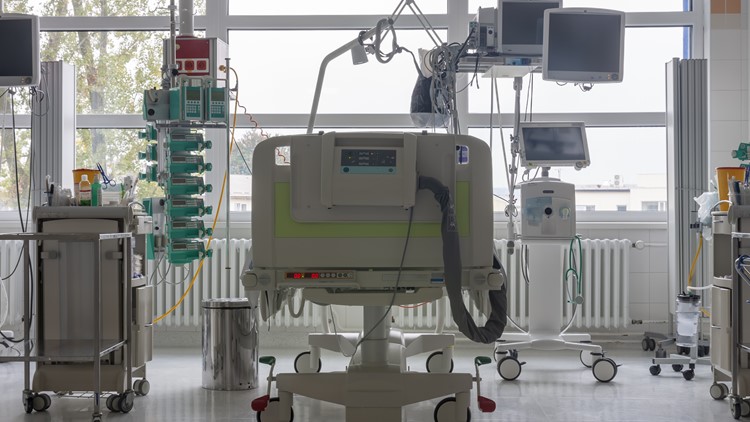WASHINGTON — Pneumonia cases are on the rise in the DMV, with MedStar Health Urgent Care providers reporting a 358% increase in walking pneumonia diagnoses last month. In October, MedStar Health diagnosed 1,789 cases of walking pneumonia across its 33 urgent care locations in Washington, D.C., Maryland, and Northern Virginia—up from just 391 cases in the same month in 2023.
This spike has raised concerns among health professionals.
Here's what residents need to know to protect themselves and their families:
Walking pneumonia, often caused by the bacterium Mycoplasma pneumoniae, is a milder form of pneumonia. Unlike traditional pneumonia, which can cause severe illness and requires hospitalization, walking pneumonia typically presents as a chest cold and can be managed on an outpatient basis. However, don’t be fooled by its name—while individuals with walking pneumonia may not appear as ill as those with more severe forms of pneumonia, it can still lead to serious complications if left untreated.
Symptoms and diagnosis:
The symptoms of walking pneumonia typically develop gradually. They can start with a sore throat, cough, and mild fever, which are often confused with a common cold. As the infection progresses, these symptoms can worsen, leading to fatigue, headaches, and chest discomfort.
If left unchecked, walking pneumonia can develop into more severe complications, such as worsening asthma, severe pneumonia, or even encephalitis (inflammation of the brain). While these complications are rare, they explain how important early diagnosis and treatment is.
Who is at risk?
Walking pneumonia can affect anyone, but children ages 5–17 and young adults are at higher risk. Young children may also experience symptoms like diarrhea, wheezing, or vomiting. Those with conditions like asthma or weakened immune systems are more likely to face severe complications.
If you or a loved one has symptoms like a persistent cough, fever, or chest discomfort, seek medical attention as soon as possible. Though not usually life-threatening, proper treatment is important to avoid complications.
MedStar Health advises seeing a healthcare provider early for diagnosis. Difficulty breathing, chest pain, or worsening symptoms may indicate more severe pneumonia and require immediate care.
Walking pneumonia is treatable with antibiotics, usually macrolides like azithromycin. Penicillin won’t work, and in some cases, two antibiotics may be prescribed for effective treatment.
Prevention tips:
While there is no vaccine specifically for walking pneumonia, there are several steps individuals can take to reduce the risk of infection:
- Good hygiene: Wash hands frequently and avoid close contact with sick individuals.
- Avoid crowded places: It spreads through respiratory droplets, so crowded areas can increase your risk of exposure.
- Stay home if sick: If you or your child are experiencing symptoms, it’s important to stay home to prevent spreading the infection to others.
As we head into the colder months, it's essential to be mindful of the symptoms and risks associated with walking pneumonia. MedStar Health's dramatic increase in cases serves as a reminder that pneumonia, even in its milder forms, can have serious consequences if not addressed early. If you or a loved one experience symptoms, don’t hesitate to seek medical advice to ensure proper diagnosis and treatment.



